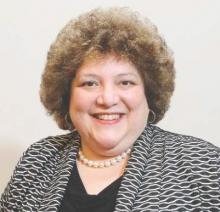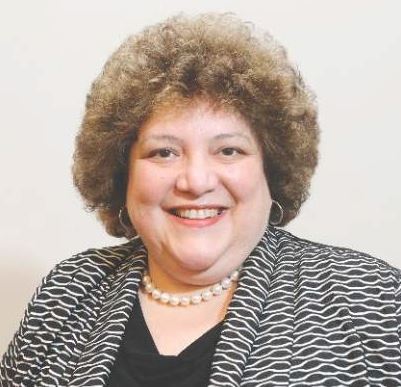User login
AGA, in its role as a leader and reformer in the dialogue with the American Board of Internal Medicine (ABIM) on reforming the maintenance of certification (MOC) process, convened the gastroenterology and hepatology societies, including ACG, ASGE, AASLD, ANMS and NASPGHAN to develop a set of consensus principles on this issue at the end of October. AGA shared the following consensus principles with ABIM:
• MOC needs to be simpler, less intrusive, and less expensive.
• We, the societies listed above, support ending the high-stakes, every-10-years exam.
• We, the societies listed above, do not support closed-book assessments as they do not represent the current realities of medicine in the digital age.
• We, the societies listed above, support the principles of lifelong learning as evidenced by ongoing CME activities, rather than lifelong testing.
• We, the societies listed above, support the concept that, for the many diplomates who specialize in certain areas of gastroenterology and hepatology, MOC should not need to include high-stakes assessments of areas where the diplomate may not practice.
For more information, review AGA’s alternate pathway to recertification, The Gastroenterologist: Accountable Professionalism in Practice or G-APP, which was authored by AGA’s education and training councilor, Dr. Suzanne Rose, and a group of AGA colleagues.
AGA, in its role as a leader and reformer in the dialogue with the American Board of Internal Medicine (ABIM) on reforming the maintenance of certification (MOC) process, convened the gastroenterology and hepatology societies, including ACG, ASGE, AASLD, ANMS and NASPGHAN to develop a set of consensus principles on this issue at the end of October. AGA shared the following consensus principles with ABIM:
• MOC needs to be simpler, less intrusive, and less expensive.
• We, the societies listed above, support ending the high-stakes, every-10-years exam.
• We, the societies listed above, do not support closed-book assessments as they do not represent the current realities of medicine in the digital age.
• We, the societies listed above, support the principles of lifelong learning as evidenced by ongoing CME activities, rather than lifelong testing.
• We, the societies listed above, support the concept that, for the many diplomates who specialize in certain areas of gastroenterology and hepatology, MOC should not need to include high-stakes assessments of areas where the diplomate may not practice.
For more information, review AGA’s alternate pathway to recertification, The Gastroenterologist: Accountable Professionalism in Practice or G-APP, which was authored by AGA’s education and training councilor, Dr. Suzanne Rose, and a group of AGA colleagues.
AGA, in its role as a leader and reformer in the dialogue with the American Board of Internal Medicine (ABIM) on reforming the maintenance of certification (MOC) process, convened the gastroenterology and hepatology societies, including ACG, ASGE, AASLD, ANMS and NASPGHAN to develop a set of consensus principles on this issue at the end of October. AGA shared the following consensus principles with ABIM:
• MOC needs to be simpler, less intrusive, and less expensive.
• We, the societies listed above, support ending the high-stakes, every-10-years exam.
• We, the societies listed above, do not support closed-book assessments as they do not represent the current realities of medicine in the digital age.
• We, the societies listed above, support the principles of lifelong learning as evidenced by ongoing CME activities, rather than lifelong testing.
• We, the societies listed above, support the concept that, for the many diplomates who specialize in certain areas of gastroenterology and hepatology, MOC should not need to include high-stakes assessments of areas where the diplomate may not practice.
For more information, review AGA’s alternate pathway to recertification, The Gastroenterologist: Accountable Professionalism in Practice or G-APP, which was authored by AGA’s education and training councilor, Dr. Suzanne Rose, and a group of AGA colleagues.

